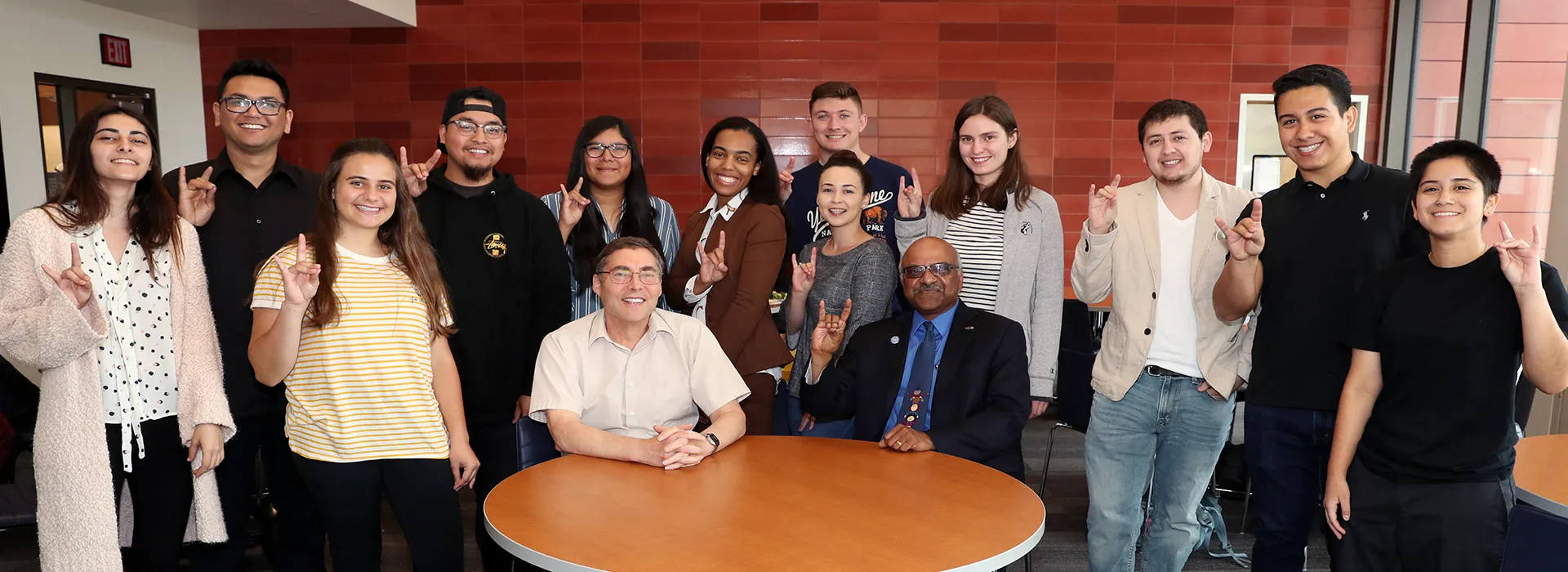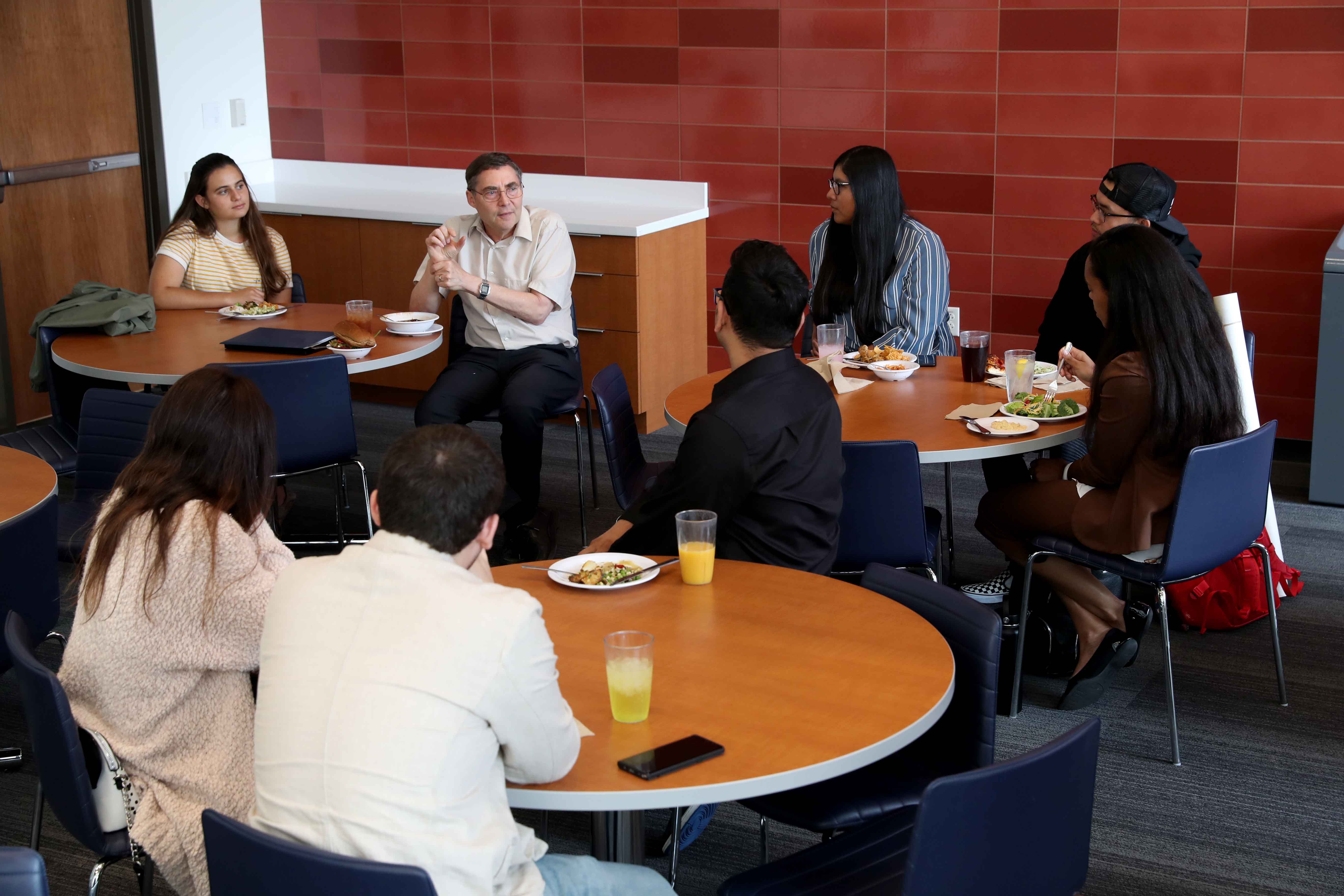Joe Gutierrez Office of Strategic Communication (909) 537-5007 joeg@csusb.edu

Physicist and Nobel Prize winner Carl Wieman from Stanford University visited Cal State San Bernardino May 8 to present his lecture “Taking a scientific approach to science education (and most other subjects)” in the Jack H. Brown College of Business and Public Administration. “Wieman is not only a nationally recognized and respected scientist and a scholar, but also a leader in education,” said Sastry Pantula, dean of the CSUSB College of Natural Sciences in his opening remarks. “He has done extensive experimental research in both atomic physics and science education.” During his lecture, Wieman, professor of physics of the Graduate School of Education, reviewed what research indicates are the learning principles and key features of their effective implementation in classrooms. He says this research is setting the stage for a new approach to teaching that can provide the relevant and effective science education for all students that is needed for the 21st century. It also provides a better way to evaluate teaching quality. Wieman said he first got into this research by working with graduate students in his research labs – not when he was teaching courses. “I started noticing … a strange phenomenon,” he said. “These students came into work in my lab and they’ve had many, many years of great success in their math and physics courses … but they were really clueless about how to actually do physics when they were confronted with working in this. But it wasn’t that they didn’t have basic capabilities because I had seen them … turn into expert physicists. “I came to see this as a basic puzzle going on here about why was this happening. Why was there such a disconnect between what they learned and being successful in courses and actually being able to work as research physicists? … There’s some fundamental concept or problem going on here, and I treated it like I would a physics problem,” he said. “I went out to look at what we knew, about what research said about how people learn, about how people learn science, physics to make some sense of this … It made me realize there could be much more effective ways to teach than what I had seen and been aware of.” In addition to his lecture, Wieman also participated in meetings and discussions with CSUSB President Tomás D. Morales and the CSUSB academic council, had lunch with select students, and worked with department chairs in the College of Natural Sciences to discuss how they can have an impact on student success. Wieman, who has conducted extensive experimental research in atomic and optical physics, earned a Nobel Prize in Physics in 2001 and was honored as Carnegie U.S. University Professor of the Year by the Carnegie Foundation for the Advancement of Teaching in 2003. He earned his bachelor’s in physics from the Massachusetts Institute of Technology and his doctorate in physics from Stanford University. Wieman joins other Nobel laureates who have spoken at CSUSB including George Wald, 1967 Nobel Prize for Medicine; Toni Morrison, 1993 Nobel Prize in Literature; and Shirin Ebadi, 2003 Nobel Peace Prize.
